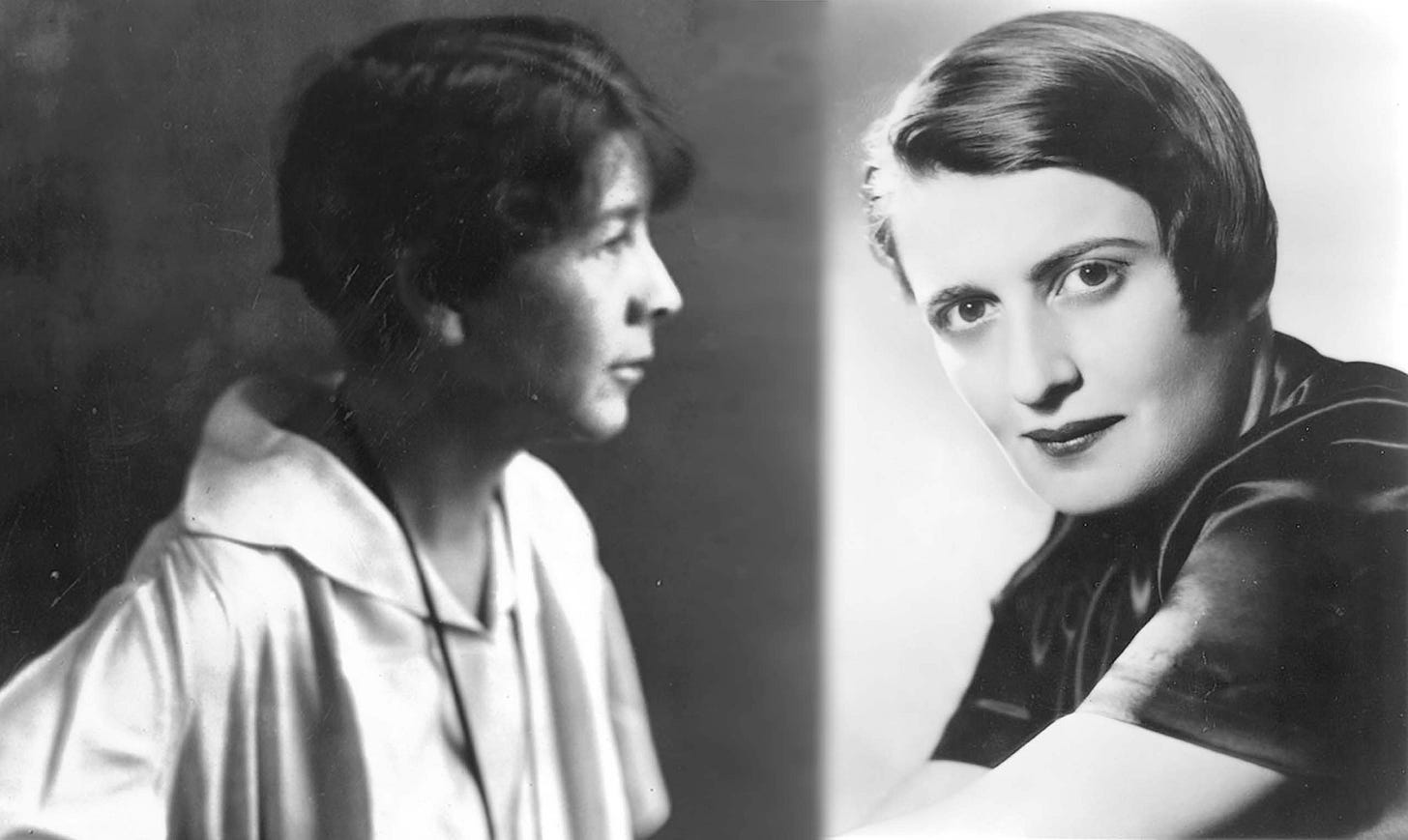The Importance of Being a Happy Warrior
Lessons from the relationship between Isabel Paterson and Ayn Rand.
Today, I had the pleasure of reading Timothy Sandefur’s long-form article for The Objective Standard, “How Isabel Paterson Helped Ayn Rand Find Atlantis.” Sandefur’s encyclopedic knowledge on the personal and intellectual relationship between Rand and Paterson was illuminating. Even if you are not a consumer of biographies, I highly recommend the piece to any libertarian or Objectivist interested in learning more about the historical and personal context of Atlas Shrugged.
The friendship between two of Freedom’s Furies was truly one for the ages. Sandefur recounts how Paterson dedicated a copy of her novel, If It Prove Fair Weather, to Rand invoking Montaigne’s platonic ideal of friendship: “one in which ‘souls are mingled and confounded in so universal a blending that they efface the seam which joins them together.’” Paterson’s love and respect was undoubtedly shared; Rand sent her a copy of The Fountainhead with the message, “You have been the one encounter in my life that can never be repeated.” Most people can only hope to experience such true, genuine connection with another soul. Tragically, the powerful connection between the two women was not destined to last.
Apparently, Paterson was a peculiarly caustic, dismissive, hostile advocate of liberty. Paterson’s Manichean view of right and wrong ended up alienating the likes of William Buckley Jr. and, after excoriating potential investors in Rand’s proposed free market magazine, torpedoed her special relationship with Ayn. Sandefur summarizes Paterson’s uninhibited apathy for those who dared deviate from her particular brand of the freedom philosophy:
It seemed as though Paterson had been “wrecked by a fierce sense of injustice”—an indignation toward cruelty and irrationality—which erupted into “exaggerated pride” as well as an “insane arbitrariness”—a tendency to say “I am right because I’m right.”
How can advocates of liberty hope to persuade the general public to embrace the freedom philosophy, even marginally, while expressing themselves so cruelly that even best friends become estranged? We can’t. Basking in one’s righteousness and viciously reprimanding those who disagree whatsoever is a recipe for personal isolation, alienation, and, ultimately, a less free nation and world. Instead, for both intrinsic and instrumental reasons, we ought to be magnanimous, tolerant, and patient in explaining the merits of free markets, individualism, and rational self-interest. We choose the path of vindictiveness and superciliousness at our own peril, and the peril of the liberty movement.




